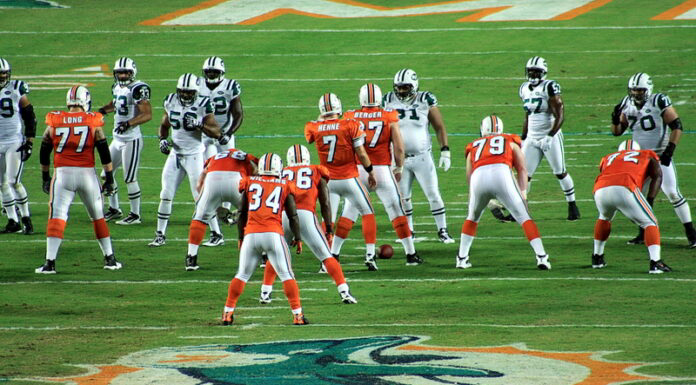Former Miami Dolphins defensive lineman Randy Crowder, who made headlines both for his on-field contributions and a high-profile drug conviction that temporarily derailed his career, died at age 72 on May 21, 2025. The Miami Dolphins announced his passing on Wednesday morning, though no immediate cause of death was provided.
Crowder carved out a respectable six-year NFL career spanning from 1974 to 1980, with a notable interruption that would define much of his public legacy. Selected by Miami in the 1974 NFL Draft out of Penn State University, where he earned first-team All-American honors in 1973, Crowder established himself as a reliable pass rusher during his first three seasons with the Dolphins.
Playing alongside the powerhouse Miami defense from 1974 to 1976, Crowder appeared in 39 games and made 25 starts, recording 12.5 sacks and one fumble recovery. His performance during the 1975 season was particularly noteworthy, as he posted 7.5 sacks, ranking second on the team that year.
The Pennsylvania native’s promising trajectory with the Dolphins came to an abrupt halt on May 4, 1977, when he and teammate Don Reese were arrested by Miami police on cocaine distribution charges.
The arrest marked the beginning of one of the NFL’s earliest high-profile drug scandals. Crowder and Reese, who had been friends and teammates since being drafted by Miami in 1974, were charged with selling one pound of cocaine to undercover officers. The street value of the cocaine was estimated at $233,000, a staggering sum nearly five decades ago. According to court records and Don Reese’s later detailed account in a 1982 Sports Illustrated exposé, the two players had been approached by an acquaintance seeking to purchase drugs, leading to the fateful transaction that ended both their careers with Miami.
On August 10, 1977, Circuit Judge Joseph Durant sentenced both Crowder and Reese. The judge withheld adjudication as part of a plea-bargaining agreement, meaning the players avoided formal convictions while serving their sentences. “After pleading no contest on August 10, Reese and Crowder were sentenced to one year incarceration at the Dade County Stockade, followed by four years probation.” The sentence was considered remarkably lenient given the severity of the charges at the time.
Following his release from prison in 1978, Crowder successfully rehabilitated his career and personal life. The Tampa Bay Buccaneers offered him a second chance, and he played three productive seasons from 1978 to 1980 under head coach John McKay. During his stint with Tampa Bay, Florida, Crowder added 6.5 sacks to his career totals while appearing in 32 games with 10 starts. His overall NFL statistics reflected a solid career despite the interruption: 19 total sacks and three fumble recoveries across 71 games played.
After retiring from professional football following the 1982 season, Crowder returned to his collegiate roots at Penn State University, where he served as defensive line coach under legendary head coach Joe Paterno for two seasons. This homecoming represented a full-circle moment for Crowder, who had been a standout player for the Nittany Lions’ undefeated 1973 team that featured several future NFL stars. His coaching tenure coincided with Penn State’s rise to national prominence, as the program captured its first national championship in 1982.
Crowder’s personal life included marriage to Pauline Pope and raising three children, one of whom would follow in his father’s footsteps spectacularly. Randolph Channing Crowder Jr., known simply as Channing, was drafted by the Miami Dolphins in the third round of the 2005 NFL Draft out of the University of Florida. The younger Crowder spent his entire six-season NFL career with Miami, starting 74 games and recording 470 total tackles as a linebacker.
The Crowder family holds a unique distinction in Dolphins history as the only father-son duo both drafted by the franchise. While Miami has had three father-son combinations play for the team over the years, including the Barber and Griese families, Randy and Channing remain the sole pair to have both been selected in the NFL Draft by the organization. This legacy connection made Randy’s passing particularly poignant for the Dolphins organization and its longtime fans.
Channing Crowder has remained connected to South Florida sports culture following his retirement, co-hosting the popular “Hochman and Crowder” radio show on WQAM alongside Marc Hochman. The program has become a staple of Miami sports talk radio, with Channing often sharing stories about his father’s playing days and the lessons learned from Randy’s career arc, including the consequences of poor decisions and the possibility of redemption.
The 1977 drug scandal that temporarily derailed Crowder’s career became a watershed moment for the NFL’s approach to substance abuse issues. Don Reese’s subsequent Sports Illustrated article in 1982, which detailed widespread cocaine use throughout the league, helped spark broader conversations about player welfare and drug testing policies that continue to evolve today. Crowder, unlike his former teammate, largely stayed out of the public eye following his playing and coaching careers, focusing on family life and personal redemption.
The Miami Dolphins’ announcement of Crowder’s death was brief but respectful, noting his contributions during his three seasons with the franchise from 1974 to 1976. Team officials emphasized his role in the organization’s history while acknowledging the complex legacy he leaves behind. His passing represents the end of an era for a generation of Dolphins players who experienced both the glory of the team’s 1970s success and the personal challenges that came with professional athletics during a less regulated time in league history.








